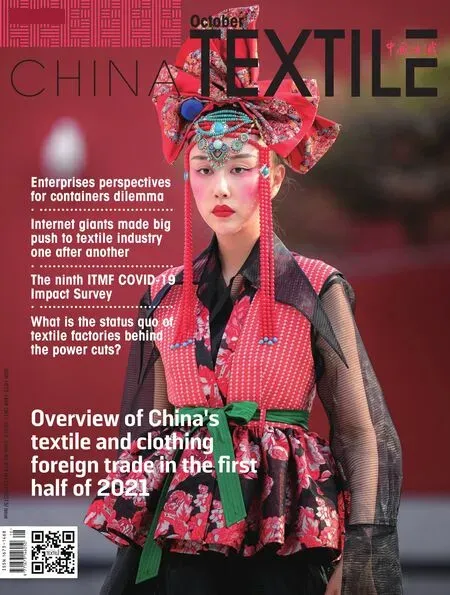Thee ninth ITMF COVID-19 Impact Survey
Edited by Zhao Xinhua
Western upstream enterprises run well
Researchers asked companies around the world and the whole textile value chain about their current business. On average, business conditions in July 2021 were pretty good. Small changes can still be observed compared to the last results of May 2021. Thee number of companies in good operation fell to 31 percent from 37 percent, while the number of companies in excellent operation rose to 43 percent from 40 percent. Thee proportion of businesses under not pretty good running rose to 26 percent from 23 percent. As a result, the difference between "good" and "bad" fell from +14 percentage points (pp) to +5 percentage points. Theis kind of deterioration can be explained by increased uncertainty about the speed and stability of the economic recovery. While restrictions on companies have been lifted in some parts of the world (e.g., US, Europe), these in India, Bangladesh, Indonesia are gradually tightening. In addition, travel restrictions still remain, which has a negative impact on travel, accommodation and industry activities.
At the regional situation, there are some huge differences. Most companies in Europe (including Turkey) and North America find themselves in "good" business conditions. In July, the gap between "good" and "bad" reached +41pp in Europe and +33pp in North America. In addition, companies in South Asia, Southeast Asia and South America reported positive differences between "good" and "bad" (+ 23PP, + 17PP and + 13pp respectively). On the other side, companies in East Asia and Africa, where the difference between "good" and "bad" is -38pp and -55pp respectively. Observations of different market segments indicate that upstream segment firms find themselves in a fairly good business environment. Thee difference between "good" and "bad" reached +33 percent for spinning mills and +28 percent for textile machinery enterprises. Thee difference for nonwovens producers was +/-0, of which 60% were satisfied with their business conditions. In the downstream segment, the difference is negative: weaving/knitting firms (-14PP), dyeing/printing firms (-20PP), chemicals firms (-33PP) and clothing firms (-42pp). In addition, difference of fibre producers is -43pp.
Market sentiment in 6 months still high
In July 2021, the ninth ITMF COVID-19 Impact Survey was conducted. They ask companies around the world and across the textile value chain what they expect their business to look like in the next six months (to January 2022). The results show that industry expectations are positive (at a high level), despite a slight decline from the eighth survey in May 2021. In July, 51% expected business to be "better" in six month, compared with 57% in May. The number of companies expecting business to be "not so good" was unchanged at 16 percent. As a result, the difference between good and bad dropped slightly from +41 percentage points (PP) to +36 percentage points.
At the regional level, firms particularly in North America (+ 89PP), Africa (+ 64PP) and South America (+ 38PP) expect a "better" operating situation by January 2022. Companies in South Asia, Europe (including Turkey) and South-east Asia were also optimistic about the future (+ 23PP, + 21PP and + 17PP respectively). On average, only in East Asia is the difference between good and bad negative (minus 1pp), but 44 percent still expect business conditions to remain the same.
In terms of different segments, weaving/knitting companies were the most optimistic, with a difference of +35pp between good and bad. Similarly, fiber producers, dyeing and finishing/printing, nonwovens and apparel producers are also expecting improved operating conditions (+ 29PP, + 20PP, + 20PP and + 17PP respectively). Not surprisingly, segments that are currently doing well, such as textile machinery producers and spinning mills are less likely to see an improvement in business conditions within six months. The difference between good and bad is "only" +4pp and -17pp respectively. Although 67% of textile and chemical companies expect the operating situation to remain unchanged, the expectation is not optimistic, with a margin of -33pp between good and bad.
Survey participants were also asked about their expectations for turnover. Globally, companies on average expect turnover to increase by +15 percent in 2021 and +20 percent in 2024 compared to 2020. Similar results were found in the previous survey.

